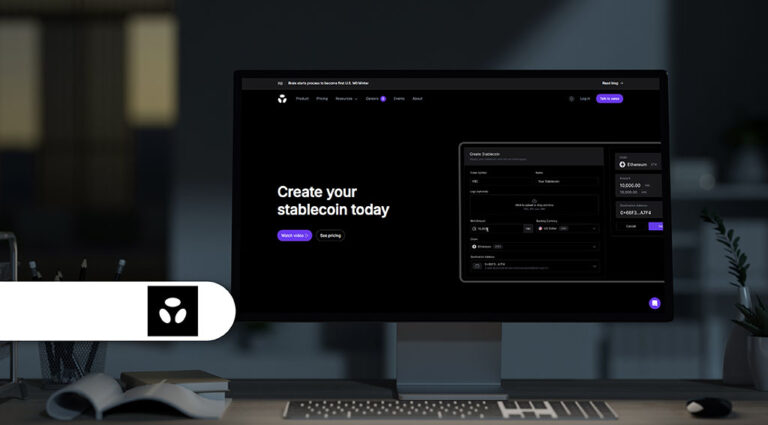Unlocking Strategic Advantage: How Kidbrooke Transforms ESG Compliance for Businesses
In recent years, sustainable finance has transitioned from a niche interest to a fundamental element of financial services strategy. As public demand for transparency and accountability escalates, financial institutions are increasingly compelled to incorporate environmental, social, and governance (ESG) factors into their decision-making processes. This shift necessitates the use of advanced tools such as data management, climate scenario modeling, and ESG analytics to foster a more sustainable financial ecosystem.
The Evolving Landscape of Sustainable Finance
Kidbrooke, a leading unified analytics platform for investment and wealth management, has explored the future of sustainable finance. The regulatory environment is rapidly changing, with initiatives like the Corporate Sustainability Reporting Directive (CSRD) and the Sustainable Finance Disclosure Regulation (SFDR) imposing stricter reporting standards. However, the challenge of managing fragmented data sources and varying methodologies continues to pose significant obstacles.
Progress in Sweden and the EU
Sweden has made significant strides, particularly in aligning with the EU Taxonomy. Nonetheless, consistency across the financial industry remains an issue. The European Commission’s recent Simplification Omnibus initiative aims to alleviate regulatory burdens by modifying directives like CSRD, although SFDR will not benefit from these adjustments. While these changes are designed to reduce bureaucratic obstacles, they may inadvertently compromise the quality and comparability of sustainability data.
KidbrookeONE: A Comprehensive Solution
To tackle these challenges, Kidbrooke has developed the KidbrookeONE platform. This comprehensive solution allows institutions to seamlessly integrate ESG data into their financial reporting, ensuring compliance while offering valuable insights into climate risks, sustainability alignment, and impact performance. By employing structured analytics and automation, KidbrookeONE modernizes outdated manual processes, enhancing both accuracy and operational efficiency.
- Max Matthiessen: A prominent Swedish insurance broker, uses KidbrookeONE to consolidate and analyze sustainability data from various sources, providing a holistic view of mutual fund portfolios and associated sustainability risks.
Addressing Data Aggregation Complexity
Despite concerns regarding the complexity of data aggregation solutions, Kidbrooke’s offering is both scalable and flexible. While many professionals still rely on Excel, it often lacks the precision needed for handling extensive datasets. KidbrookeONE complements existing systems, making the transition to automation seamless and less disruptive.
The Importance of Climate Scenario Modeling
The demand for robust climate scenario modeling is on the rise. As EU regulations increasingly mandate firms to include sustainability KPIs and long-term risk assessments in their reports, financial institutions must evaluate both direct and value chain climate risks. Some insurers have begun to integrate climate risks through ORSA (Own Risk and Solvency Assessment) under Solvency II, although many are still adapting to the broader expectations set by CSRD.
Kidbrooke’s economic scenario generator assists firms in embedding climate pathways into financial models, enabling them to simulate performance under various policy, transition, and carbon taxation scenarios. This capability equips institutions to make informed, climate-conscious decisions that extend beyond mere compliance.
Shifting Client Expectations in Investment
Investor expectations are evolving, with a growing desire for portfolios that reflect both financial goals and personal sustainability values. Wealth managers are now tasked with integrating ESG considerations into investment recommendations. Some institutions have started offering digital platforms that allow clients to convey their sustainability preferences, which can then be used to tailor personalized portfolios.
KidbrookeONE facilitates this through sustainability profiling integrated with traditional financial risk assessments, in line with guidance from the European Insurance and Occupational Pensions Authority (EIOPA). By capturing clients’ ESG preferences alongside their financial objectives, the platform lays the groundwork for investment decisions that align with both.
Empowering Clients through Transparent Data
Financial institutions can integrate their own ESG frameworks into Kidbrooke’s modular system, fostering a consistent and transparent basis for product comparison and scenario analysis across various providers. The outcome is a more empowered client base with enhanced visibility into sustainability outcomes.
Conclusion: The Future of Sustainable Finance
Sustainability is rapidly becoming a core component of economic analysis, transcending the status of a mere regulatory checkbox. As regulatory demands intensify, the quality and standardization of ESG data will emerge as pivotal competitive differentiators. Concerns over greenwashing are likely to lead to more stringent disclosure requirements and a heightened focus on verifiable metrics.
To learn more about sustainable finance and the evolving regulatory landscape, visit Kidbrooke’s website.







